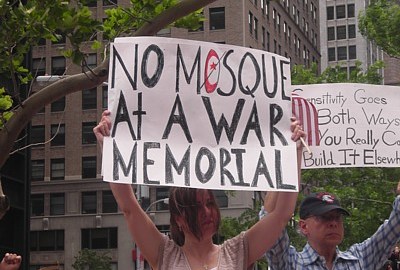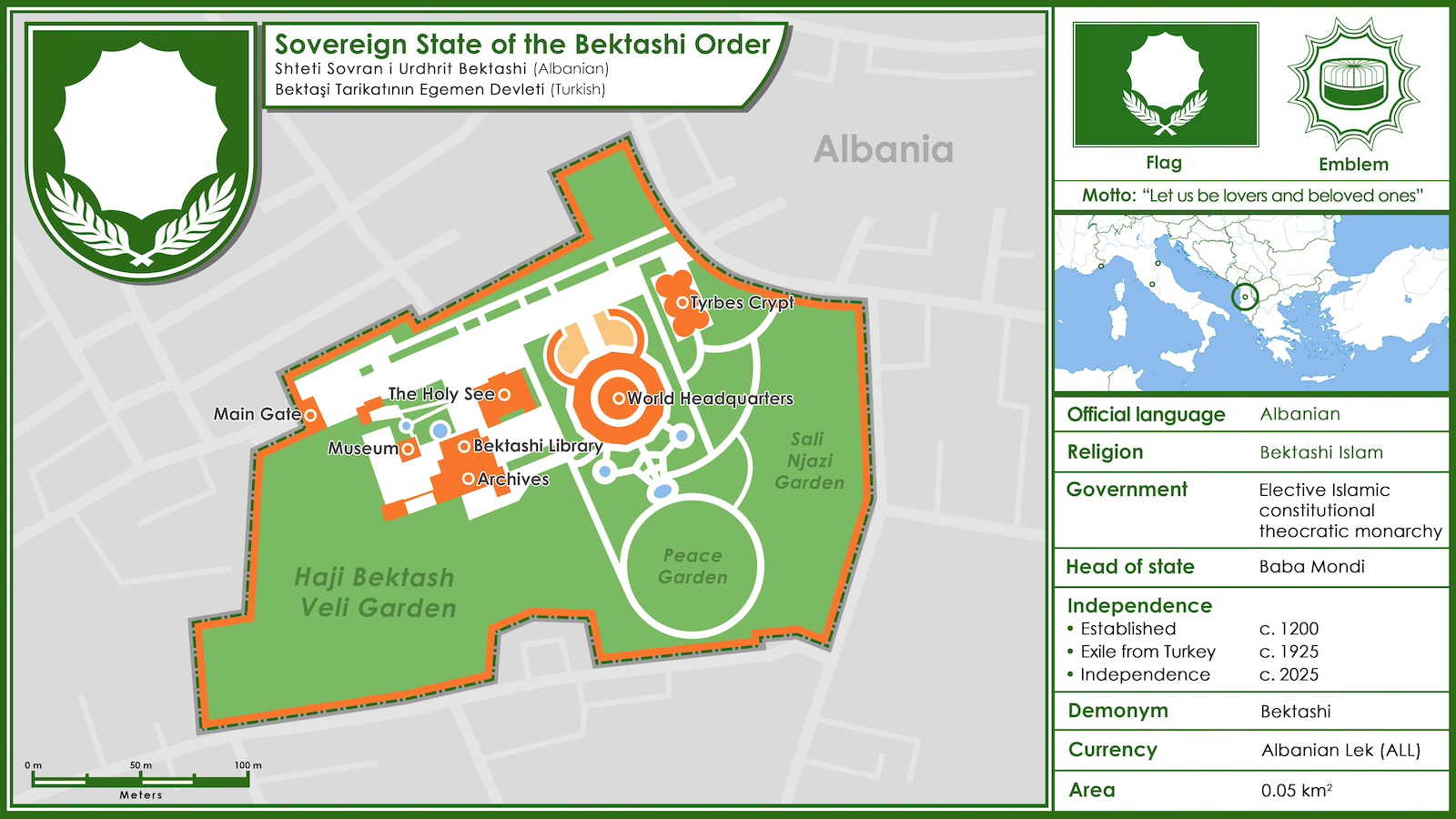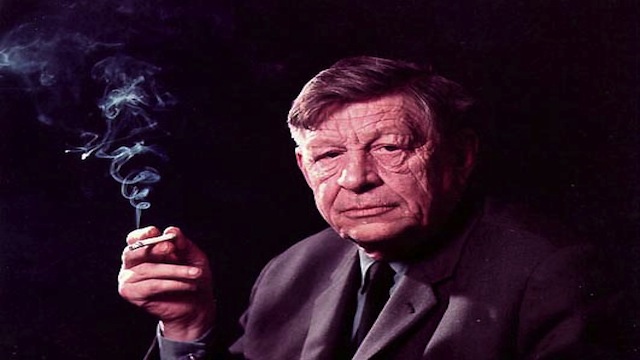The Islamic Cultural Center: A Failure in Storytelling

Power in politics turns on being able to simultaneously control attention to an issue while also defining the terms of debate. A golden rule is to define yourself and your initiative before your opponents do. These underlying dynamics that drive the strategic communication process help explain the escalating firestorm over lower Manhattan’s Islamic Cultural Center.
The terms of the debate were set early on by conservatives. Seeking a wedge issue to inflame their base in the Fall elections, they seized on the opportunity to frame the lower Manhattan Islamic Cultural Center–located 2 blocks from the former World Trade Center site–as “building a mosque on ground zero.”
That now ubiquitous phrase, a powerful frame device, stirred passion among a conservative base, activating a growing latent Islamophobia. Conservatives now have their signature issue heading into the Congressional Midterms and Democrats are left playing defense. The term has stuck, no matter how much mainstream journalists and others work to shift perceptions and the language of the debate.
But could things have been different? As Washington Post staff writer Paul Farhi discusses in an analysis piece in Sunday’s Outlook section, the controversy was enabled by the failure of the Islamic Cultural Center to anticipate conflict and to tell their story before their opponents.
The article is an excellent read and primer on strategy. Fahri also discusses the responsibility of journalists on this issue. Yet he skips over an important question: recognizing attempts to distort and inflame, why did it take so long for major news organizations to add context to the affair?
Following the 2004 election, there was much debate about news organizations showing greater responsibility and quicker action on correcting claims and providing context. Writing at the Columbia Journalism Review, Brent Cunningham proposed that journalism needs a rhetoric beat. I think it is a proposal that merits careful revisiting.
What do readers think? Did the Cultural Center allow itself to be exploited? Did journalists fall too quickly into the rhetorical trap?
Here are key excerpts from Farhi’s article:
Calling the proposed Islamic cultural center in Lower Manhattan a “Ground Zero mosque” stirs up a far more passionate response on either side of the issue than calling it “an Islamic cultural center and mosque in Lower Manhattan.” Strictly speaking, the proposed 13-story edifice at 51 Park Place isn’t exactly a mosque, at least not as that term is generally understood (domes, minarets, etc.), and certainly isn’t going to be a mosque that’s 13 stories tall.
The proposed building would contain many things — a cooking school, basketball courts, a swimming pool, child-care facilities, a restaurant, a library, an auditorium, a Sept. 11 memorial (!) and, yes, a Muslim house of worship, or mosque. It would be located two blocks from a corner of the Ground Zero site, in a neighborhood already packed with places of worship, including another Muslim prayer house that predates the events of Sept. 11, 2001.
Read the preceding paragraph and ask yourself: Doesn’t “Mosque at Ground Zero” sound more like the sort of thing that could get opponents like Newt Gingrich to declare the project “a political statement of radical islamist triumph”?…
…Politicians, revolutionaries, editors and advertisers have long understood the power of a single word to recast and reframe an issue to explosive effect. By calling the estate tax the “death tax,” conservatives broadened a narrow debate over the obligations of wealthy families into a question of taxation for all. Similarly, “pre-owned” vehicles sound a lot nicer than “used” ones….
…In Washington, naming a piece of legislation is a dark semantic art, fraught with deception and political manipulation. No matter what their flaws or merits, on name alone, it’s hard to be against something called “the Patriot Act” or the “the Clean Skies Act.” Calling anything a “reform” or “progressive” initiative implies that the reform is necessary or that opponents are regressive….
…Corporations try to play the opposite game. Instead of bland neutrality, they spend millions of dollars annually on names they hope will evoke a positive, emotional connection with consumers, says Hayes Roth, the chief marketing officer of Landor Associates, a company that creates names for marketers and organizations.
Ideally, he says, a great brand name is connected to “a great story.” Apple, for example, is an ingeniously simple and resonant name for a computer because it suggests simplicity, familiarity and ease of use, all attributes for a potentially intimidating device like a computer.
This is where the promoters of the downtown Islamic cultural center/mosque may have let events slip beyond their control, he suggests: They didn’t come up with a name that would have blunted the emotional uppercut of “mosque near Ground Zero.”
The project’s original name, Cordoba House, simply confuses the issue, Roth argues. “Most people will think of a town in Spain if they think anything at all,” he says. But that name also plays on the fears raised by opponents; the Great Mosque of C?rdoba was built on the site of an early Christian church about 1,100 years ago, then rebuilt as a Catholic church a few centuries later after the resurgence of Christianity.
While C?rdoba also became known for its tolerance of Christians, Jews and Muslims, the name can just as easily be linked to interreligious conflict and conquest — the kind of historic “triumph” that Gingrich is protesting. “It’s not a clean story,” Roth says. “If the idea of the building is to honor religious freedom in general and respect for others and to remember 9/11,” the name doesn’t convey that. Nor does the project’s new, anesthetized name, Park 51.
Indeed, Roth says, the entire controversy might have been averted if the organization behind the project had selected a name that recognized the neighborhood as the site of epic tragedy and conveyed unassailable, inarguable intentions, using words like “memorial,” “reconciliation,” “international,” “interfaith” or “understanding.”
Not coincidentally, Landor recently completed work on logos and brand identifiers for the National September 11 Memorial & Museum, located at Ground Zero. Landor’s shorthand “identity” for the project is simple and to the point and unlikely to raise any hackles at all: “9/11 Memorial.”





